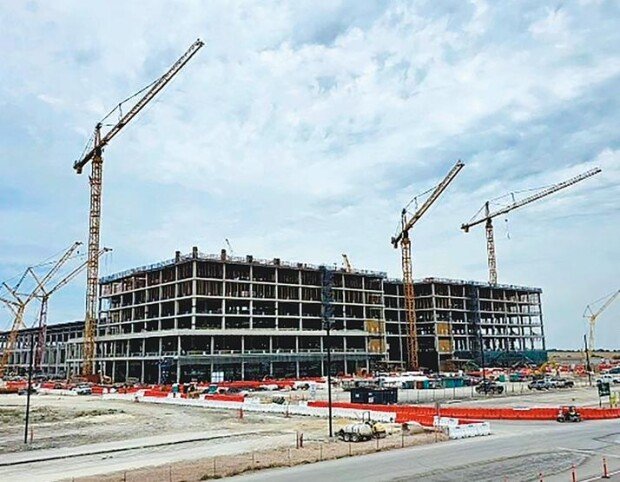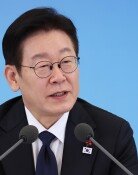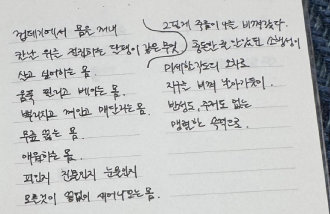Samsung likely to receive over $6 billion in U.S. semiconductor subsidies
Samsung likely to receive over $6 billion in U.S. semiconductor subsidies
Posted March. 16, 2024 07:49,
Updated March. 16, 2024 07:49

Some suggest that Samsung Electronics may receive over 6 billion U.S. dollars in subsidies through the U.S. government's Creating Helpful Incentives to Produce Semiconductors and Science Act of 2022 (also known as the CHIPS Act.) This amount surpasses the anticipated 5 billion dollar subsidy for Taiwan's TSMC.
On Thursday (local time), Bloomberg News cited multiple sources and reported, "The U.S. plans to award more than 6 billion dollars to Samsung Electronics Co., helping the chipmaker expand beyond a project in Texas. The federal funding for Samsung, South Korea’s leading chipmaker, would come alongside significant additional U.S. investment by the firm. It isn’t yet clear where the additional investment would be located." On March 8, Bloomberg reported that the U.S. government intends to offer more than 5 billion dollars in subsidies to TSMC, a Taiwanese semiconductor foundry company specializing in consignment manufacturing.
In 2021, Samsung Electronics unveiled its intention to construct a new foundry factory in Taylor, Texas, the U.S., with a 17 billion dollar investment. Due to escalating local costs, it's projected that Samsung's total investment will reach approximately 20 billion dollars by the completion of the new factory. Similarly, TSMC disclosed its investment plan of 12 billion dollars in Phoenix, Arizona, in 2021. Subsequently, at a groundbreaking ceremony in Phoenix in December 2022, attended by U.S. President Joe Biden and other dignitaries, TSMC announced a commitment to invest a total of 40 billion dollars in Phoenix.
Previously, U.S. Secretary of Commerce Gina Raimondo announced that over 600 semiconductor companies had applied for 70 billion dollars in subsidies. However, as the semiconductor production subsidy is only 39 billion dollars, intense competition for subsidies is unavoidable. During a discussion at the Center for Strategic and International Studies (CSIS) on Feb. 26 (local time), Secretary Raimondo remarked, "I advised CEOs of semiconductor companies, 'Consider yourselves fortunate if you receive even half of the amount you applied for.' This is the reality."
In this scenario, analysis indicates that Samsung Electronics is anticipated to receive more subsidies than TSMC due to the pace of investment progress and additional investment commitments. Samsung Electronics is accelerating its factory construction efforts with the aim of commencing operations by the end of this year. Conversely, TSMC has pushed back the commencement of its factory from the year end to the first half of next year (January to June) and has also delayed the initiation of construction for its second factory. Minister Raimondo stated last month, "We have chosen to prioritize projects capable of commencing operations by 2030. It would be imprudent to turn down projects that will yield results this year in favor of supporting projects with outcomes visible only a decade from now."
In the semiconductor industry, an analysis suggests that "Samsung's subsidies were likely determined considering not only the current disclosed investments but also future investment plans." Consequently, it is predicted that Samsung Electronics, which hasn't unveiled a clear additional investment plan compared to its competitors since the 2021 announcement, will soon disclose a local investment strategy. However, some observers highlight that the Ministry of Commerce may have stipulated challenging conditions for Samsung Electronics in exchange for the substantial subsidies provided.
According to Reuters, the U.S. government intends to reveal the scale of subsidies for Intel next week. This announcement coincided with President Biden and Secretary Raimondo's visit to an Intel plant in Arizona, a state considered crucial in the upcoming U.S. presidential election. Intel, which has announced plans to invest 43.5 billion dollars in states such as Arizona and Ohio, is anticipated to receive the largest subsidy amounting to 10 billion dollars among the three companies. It is further reported that the U.S. government will also unveil plans to provide subsidies to Samsung Electronics and TSMC within the upcoming weeks.
"This is an issue under private discussion between the U.S. government and individual companies,” an official from the Ministry of Trade, Industry and Energy said. “We are engaged in discussions with the U.S. Department of Commerce through various channels to ensure that Korean companies are not subject to discrimination under U.S. government policies."
Do-Young Kwak now@donga.com







